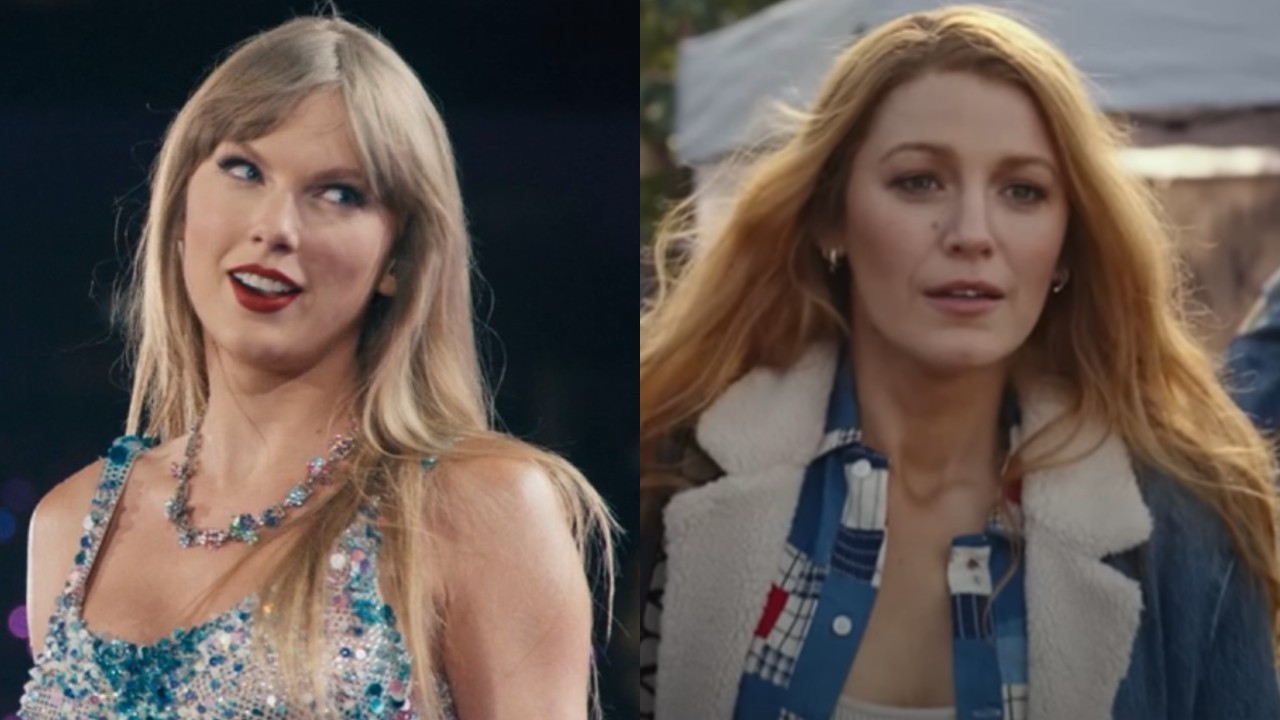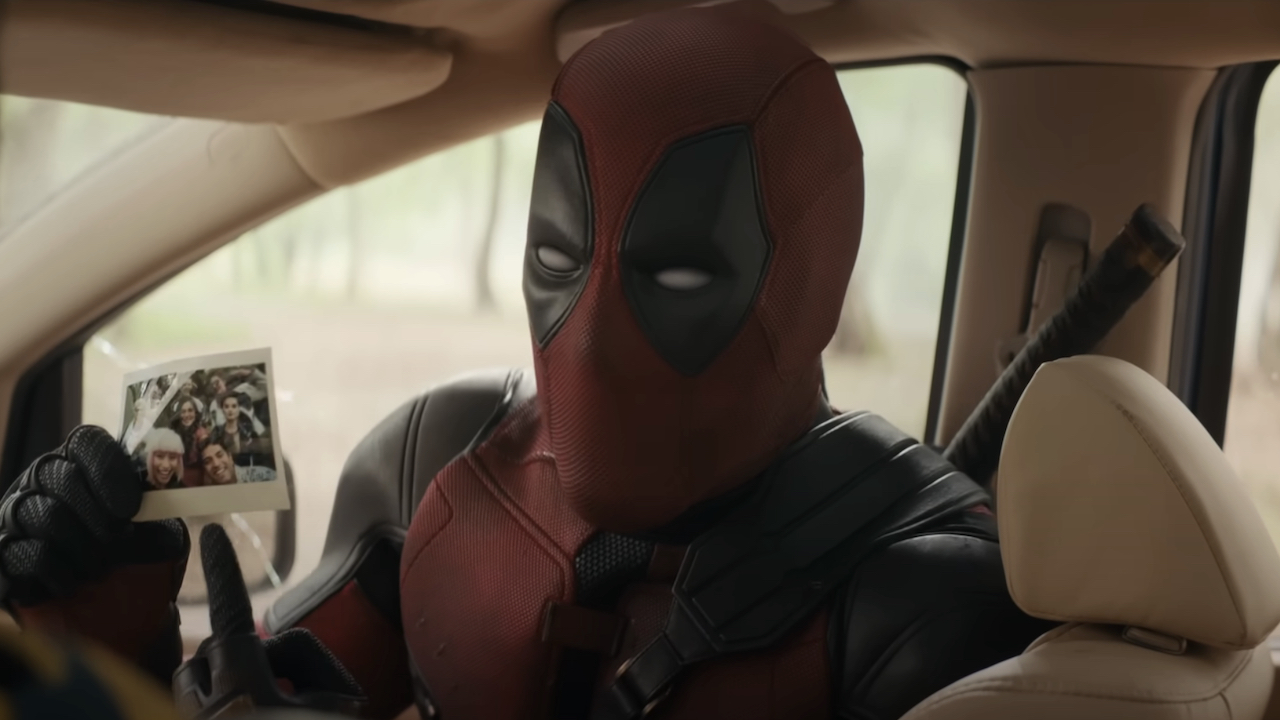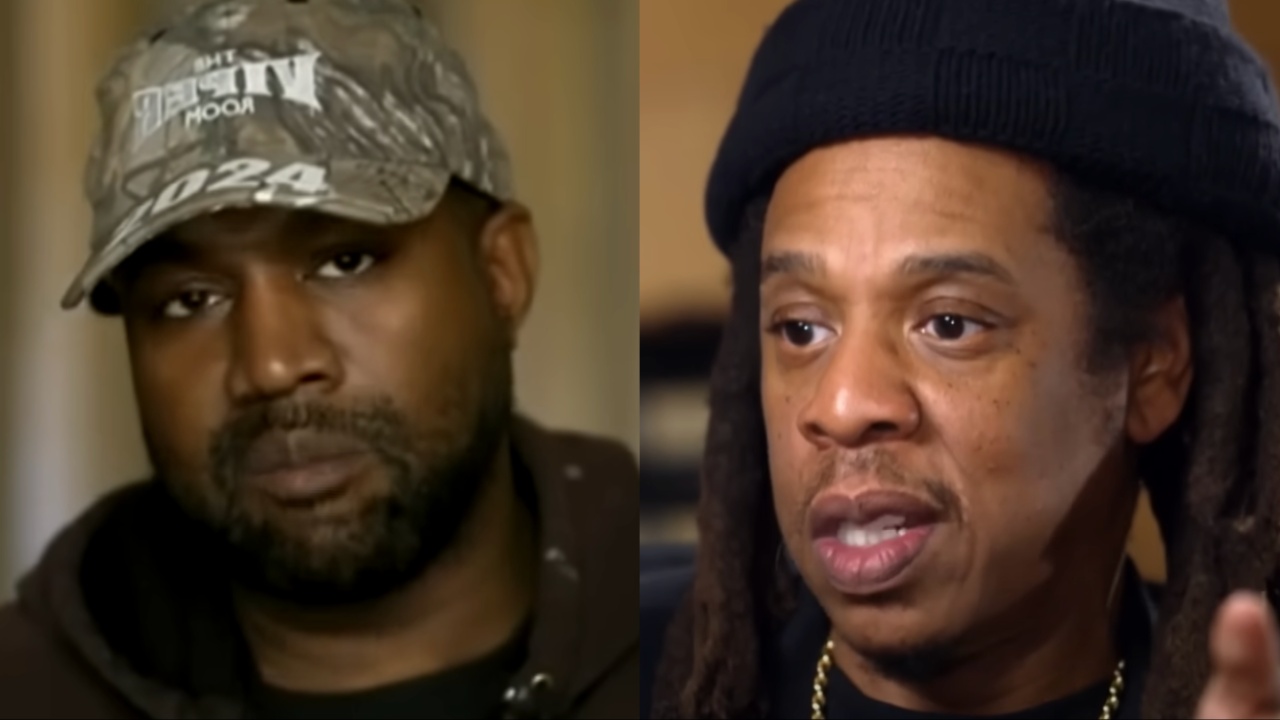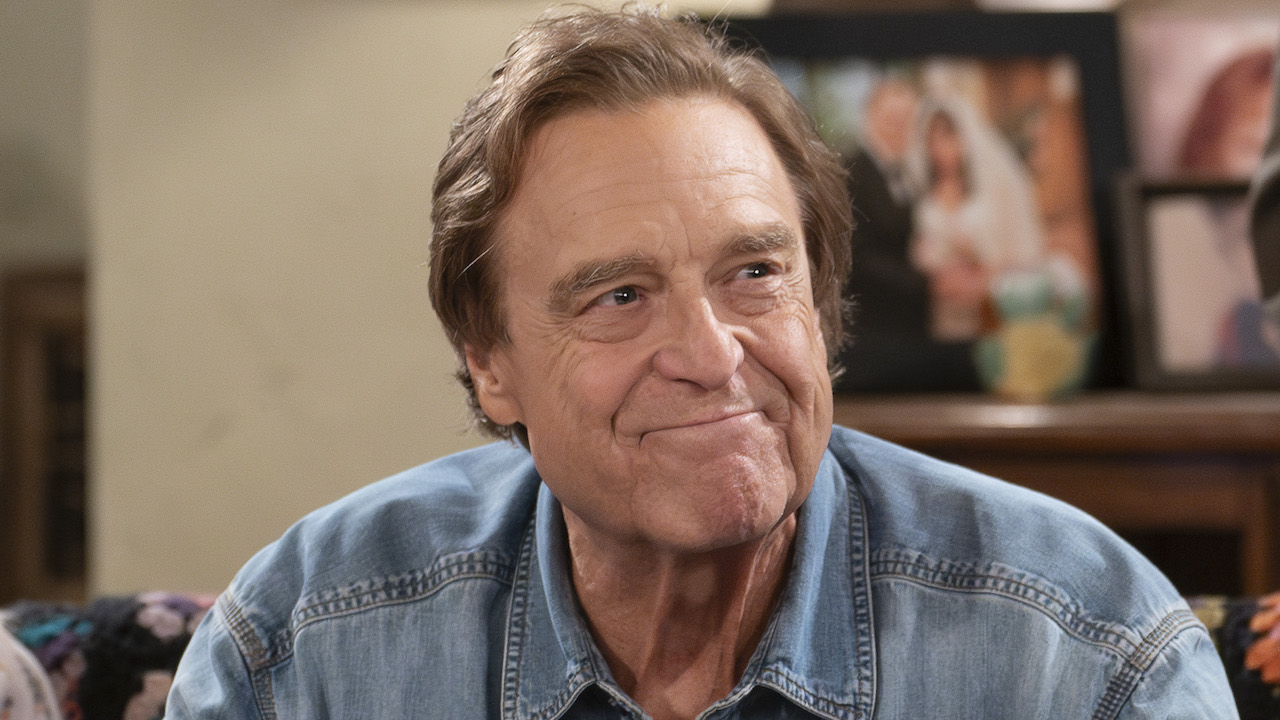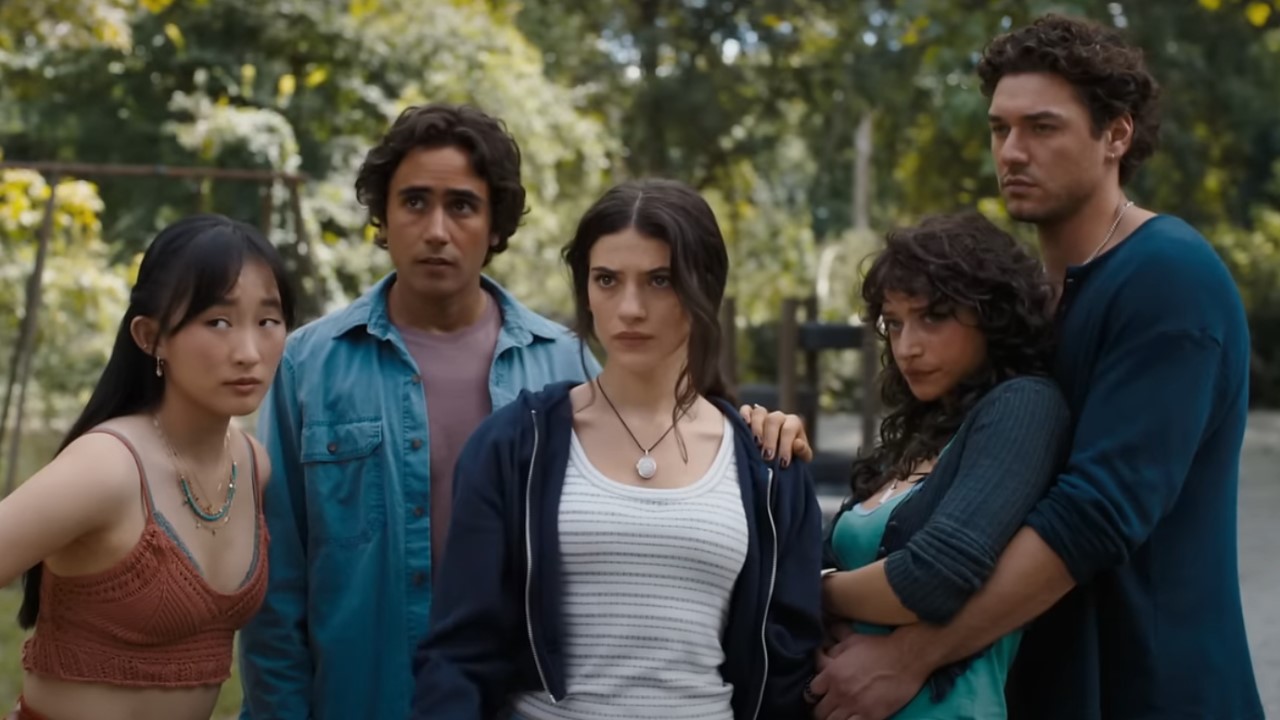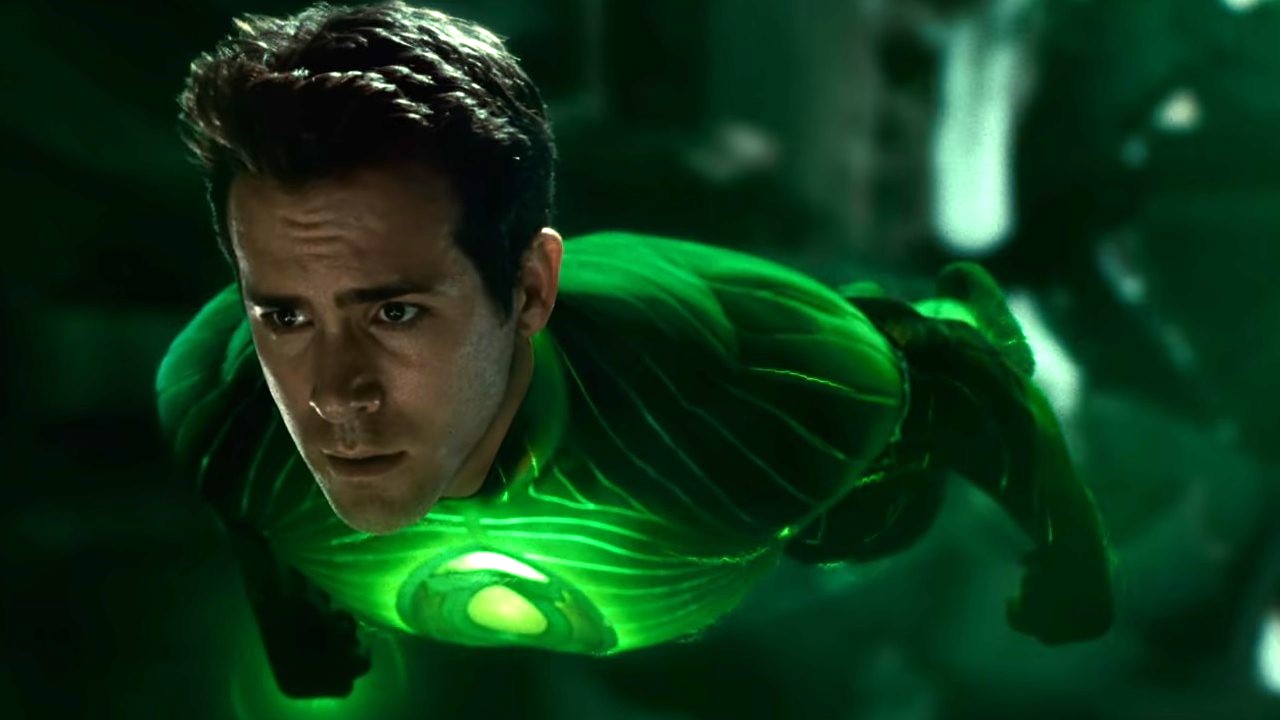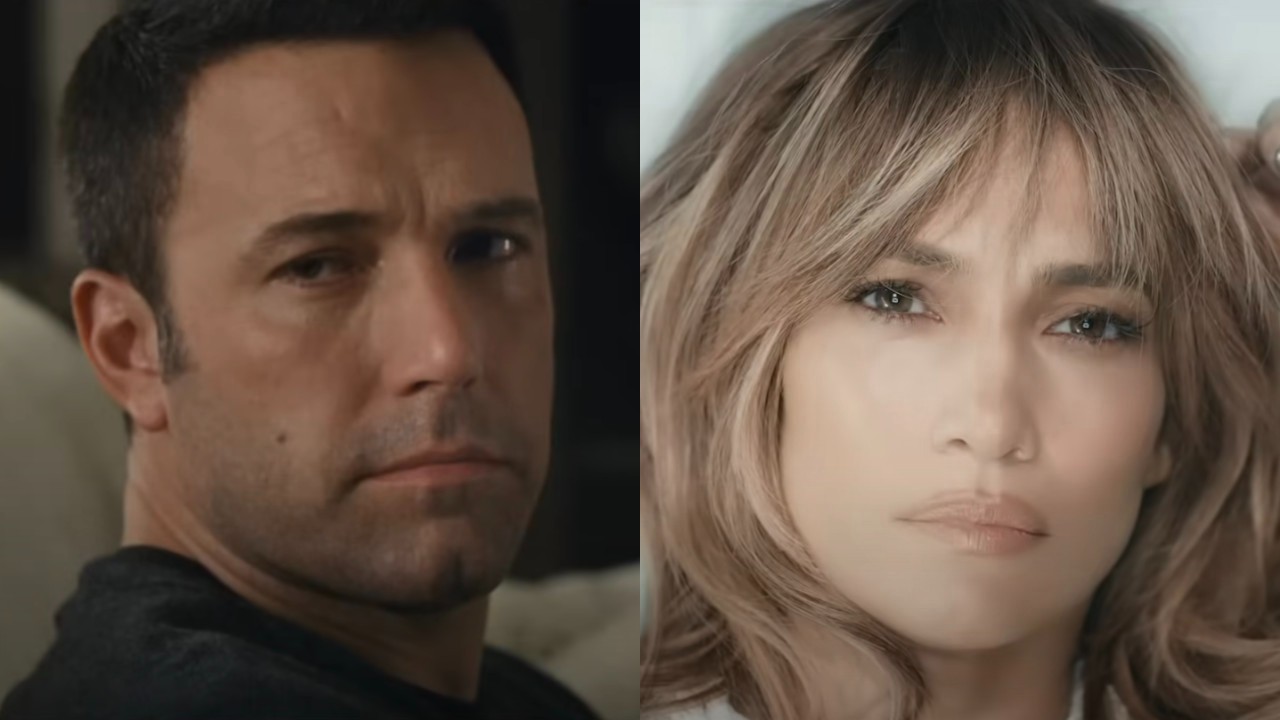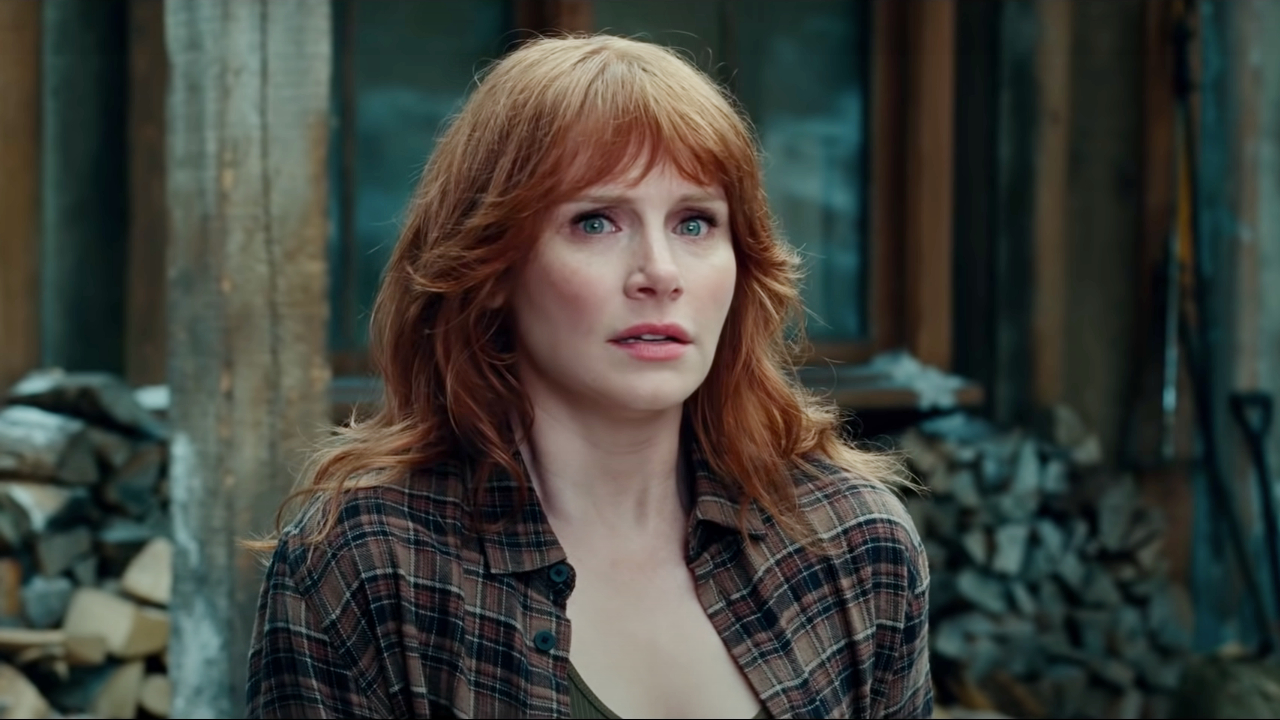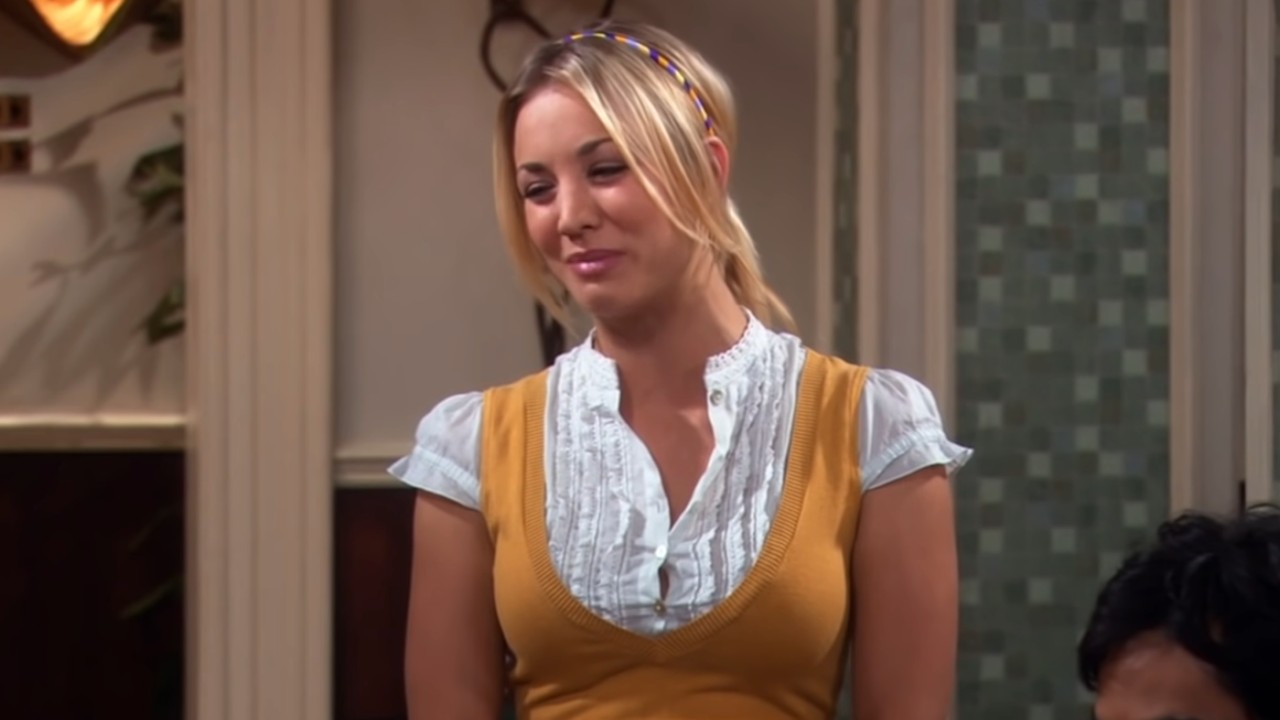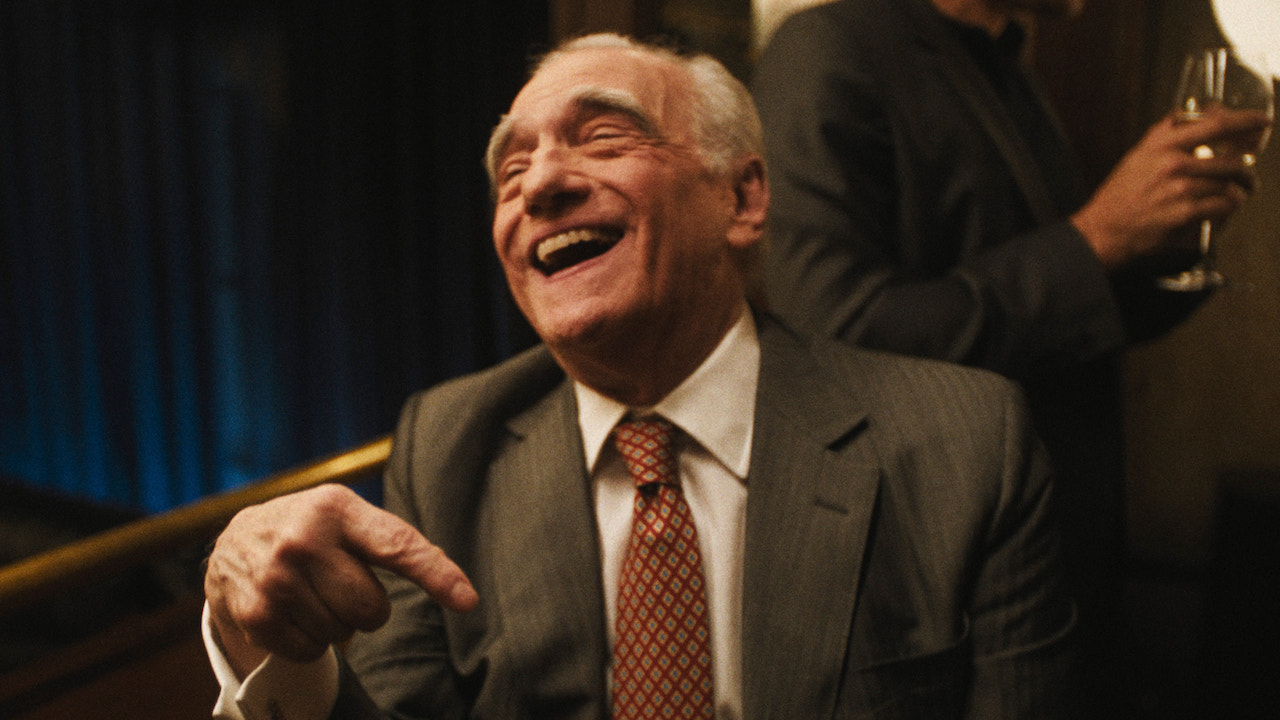Twilight: Breaking Dawn Director Bill Condon Discusses Making Two Films At Once
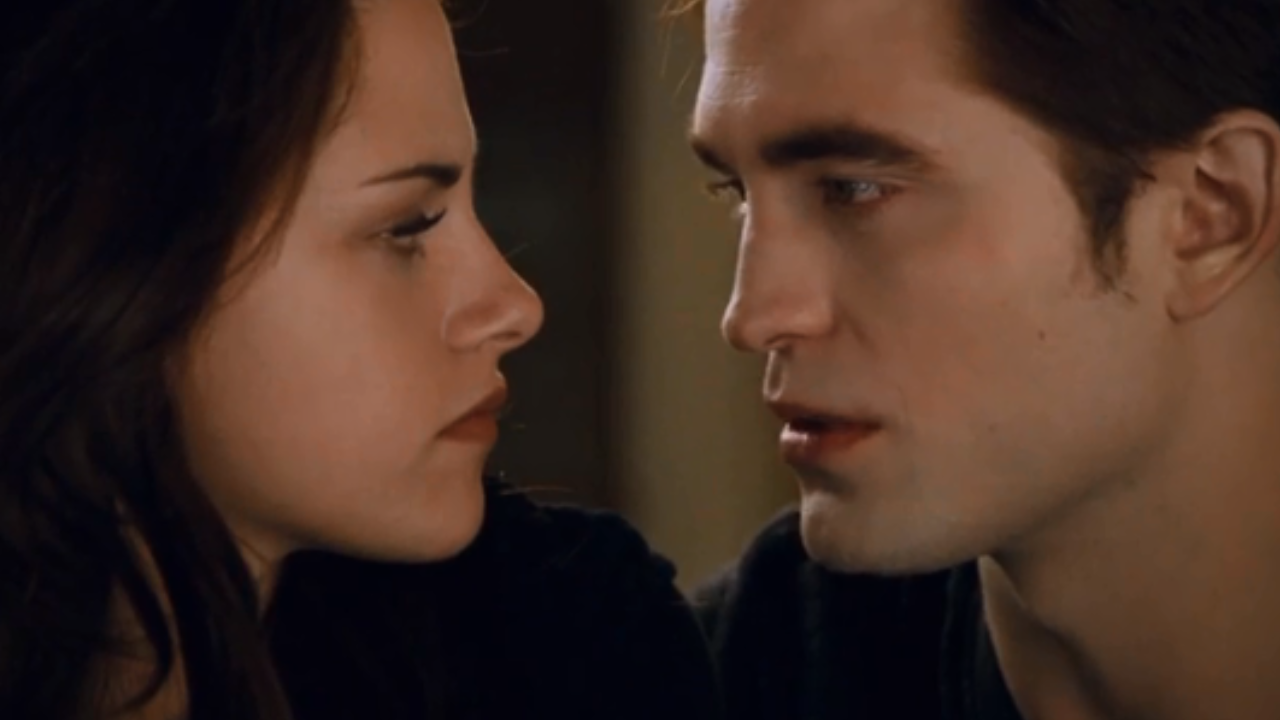
Making a film is not an easy process. There are thousands of moving pieces, scheduling complications, budgetary restrictions, off-days, weather, and the need to maintain constant continuity. But all of those problems become even more intense when you’re shooting two films at the same time, which is exactly what director Bill Condon did while helming The Twilight Saga – Breaking Dawn: Part 1.
I recently had the opportunity to sit down with the filmmaker one on one not only to talk about the two simultaneous productions, but also many other details surrounding the franchise. Check out my interview with Bill Condon below in which he talks about the double edge sword of extremely loyal fans, the involvement of author Stephanie Meyer during production, and the decision of where to cut the book in half.
This is something that I want to ask about just to start, which is that the fans are incredibly passionate about these films, the books, the characters everything about it. And obviously with that fever pitch excitement, where it has to be, like, well it has to feel really great.
Right.
But is there a double edged sword to it as well?
I think y'know, well you want to be true to the books but you also want to be true to how you visualize them, how you see them. So in a way, yes. Y'know, I started a relationship with them early on. It was always interesting and occasionally helpful. But it was, at a certain point you're making your movie, and you just hope that it intersects with what they dreamed about when they read it.
Sure. And I guess, because the fans are so passionate about the source material, how much pressure is on you to kind of keep the on-screen portrayal as close to the book as possible?
CINEMABLEND NEWSLETTER
Your Daily Blend of Entertainment News
Well, I think, um... I don't know. I just feel like obviously you make it visual, and that involves a different kind of storytelling sometimes. But I think in general, everyone involved in the movie, starting with Kristen Stewart, is, like, really intent on trying to capture the things that are happening inside of these characters' heads.
Sure. And what do you think it is about this franchise that really has captured so many peoples' love and attention?
I think like anything it's the yearning. I mean, yearning is almost better than getting, y'know? [Laughs] Um, and that's the answer. Because the yearning changes in this movie. But it has been a lot of foreplay and now here we go in this one. And it'll be interesting to see. So much happens here. So much stuff happens to these characters. That's what turned me on. But I do think that initially it was about that sense of, like, there's a certain kind of image that we all have of someone we'd fall in love with. And I think this really speaks to that.
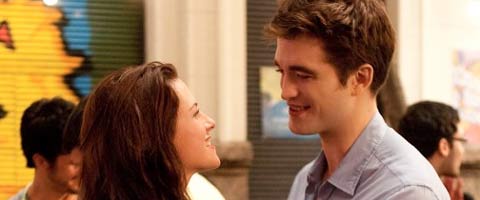
And just to talk a bit more about the technical side, um, Miss Rosenberg has written all of these movies thus far. And you yourself have directed. So I'm curious, how did you collaborate with her in that sense?
It was great. It was so great, right from the beginning. I didn't want to do it. She's done an incredible job with this, she knows it better than anybody, and because I think we speak the same language, it was just such a fun part, a fun way to get started on this process. We spent months and months and months when she was just outlining it and writing, and we would just go back and forth. It was really a great experience.
And I guess on that same level, Stephanie Meyer, in addition to writing the source material, also serves as a producer on this. For starters, how often was she on set?
Every day.
Every day?
Every minute, yes.
And how much input did she provide? Did you go to her?
Absolutely. It was this invaluable resource, y'know, the person from whose brain all of this came. And you could always just be there and ask about a bit of behavior or a quote or part of a back story that never made it into print. And that was incredibly helpful.
Yeah.
And she was also extremely respectful.
What would you say is the biggest piece of input she put in?
Um...
If you can narrow it down. [Laughs]
Yeah, because it was throughout, y'know? She's part of every bit of the process. Um... y'know, I think I'm going to save that. Because there's a thing in the second movie that... we'll do it next year. [Laughs] I'll take a trip.
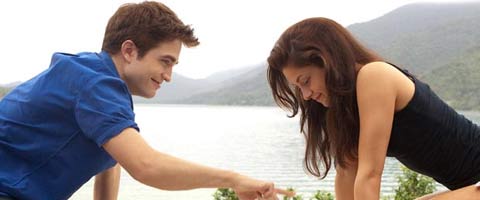
Right, right. So I guess just to talk about the conquest of two movies. I mean, few movies are actually filmed in sequence.
Yes.
But here you are dealing with two movies that are being filmed simultaneously. How on Earth can you keep the story together just in your head?
It sometimes got confusing, but I got to say, because it's one book, and because movie two starts a second after movie one ends, I very early on put the two scripts together. It's like, this is the script. This is the movie we're making. It covers a lot of territory. So that mostly worked, but then sometimes when you sort of turn around and Bella's a vampire, and you turn around and she's dying in childbirth it's kind of, “Oh I'm disoriented, does this happen before or after that?” But mostly, no.
And how do you get the actors in the proper mindset in that sense?
Right, well, that's a big part of their challenge I think.
Sure.
You know, especially Kristen's. Because she is the one who changes the most. Many of these characters are kind of magical creatures who are as they were when they died. But Bella, with this huge transformation, Kristen really had a lot of work to do to keep herself clear. But I think she liked it.
Another question I have, you mentioned that it picks up in a second and you mentioned that it was this whole thing- is there a concept out there where you could basically take out the credits from the first movie and kind of put them together?
I would love to see it like that, yeah.
Do you think that would ever possibly fly?
Oh, it's um, maybe down the line, I think that would be fun, don't you think? Or make one ten hour movie.
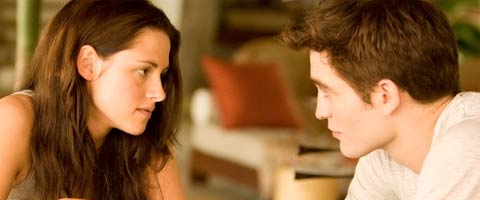
And I guess there have been- well you take the Matrix movies, the second and third Pirates of the Caribbean, Back to the Future- I'm curious, how do you find that place where you split the story?
I thought it was pretty clear. Actually, when I got involved they put it somewhere else, and I didn't think it was right. But it just seemed to me that- um, the other books are told from Bella's point of view. This one has this unique thing of being told from Bella's point of view first, and then Jacob's, and then back to Bella's.
Sure.
The first half seemed to be right at that moment when you shift back to Bella's point of view. And it's opening her eyes and having her become again.
Right. And I guess, where was the first break?
When I first got involved, I think they wanted to send her out on her first hunt.
Ok.
Um, I think that was it. It was the hunt and that didn't seem right to me.
Why?
Because it felt as though... First of all, just good story telling, it's just a great cliffhanger. What is going to happen now? That to me is a huge part of the appeal of the second movie. The first act is, now you've gone throughout the looking glass, it's like we've been watching this from Bella's point of view, but now you're a vampire and you're experiencing that. So it's a big stylistic change, something that to me, it would be jarring to give a taste of that and then stop.
And one thing I'm also curious about is that there is a certain level of humor to this.
Yes.
And I'm curious, where did you feel that was appropriate to put in? I mean, obviously there are serious dramatic themes, but once you feel it's appropriate...
Well, if you have a wedding, you've got to do awkward wedding speeches. [Laughs] There's something awful and funny about that. And the same is like, the first time you have sex- you can't do that without being a little funny.
Right.
Because there's such incredible anxiety surrounding it.
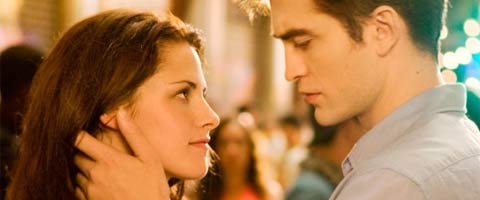
Each movie has had its own director. In fact, you're the first person to take on two of them. So it really does inhabit its own world. And what was your research process into kind of gearing into that universe?
Well, you're right, it is a whole universe that you're getting into. But you have the text, y'know, and that's sort of where it starts. And then you have the author. It's about, Tolkien, y'know, trying to figure out what he's getting at.
Sure. And was the source material something that you constantly referred to?
Oh yeah, absolutely. Yes.
How many times would you say you read them?
Oh, so many times. And also, just as you're, y'know, it happens so much in this book and in the whole process of working with Melissa, but then the night before I would shoot a scene I would look at it again. Just to see if there was some other detail or some other approach, some other thing that I want to make sure I got.
And did the movies provide a reference point as well?
To a degree. Yeah.
I mean, is there any kind of pressure to match or add on stylistically?
No. That's the thing that made it- I don't think I would have done it if those movies had all been of a similar style. I think the whole point of it is that there's no stylistic template that you're following. I mean Katherine's is such an indie movie, it's got that great indie spirit as well as capturing the soul of a teenage girl. Chris's is very, very classical, and David's again is incredibly intense and dark. And this one is something else again.
Can you define it?
I would say that to me it's in a kind of old tradition. A Hollywood tradition of romantic melodrama. And then it turns, kind of merged with a flat out horror movie.
And one thing that I guess has been brought up throughout the entire franchise are the horror movie elements. I mean, the fact that you are dealing with vampires and werewolves and shape-shifters. Is there ever an inclination to kind of bring in horrors? I mean, you have the flashback sequence with Edward in the '30's. So I was wondering if you could just talk about implementing those horror elements.
Right. Um, yeah, that one- when people see it, they'll see that- I just thought this was a neat joke that everyone is screaming at The Bride of Frankenstein and there's a monster right in their midst. But also, y'know, the fact that Bella is in a way the bride of Frankenstein. But, you know, it's one of my favorite movies and I remember hearing stories about- well, it was actually not that movie, it was on Frankenstein- that when it first previewed in Santa Barbara that people were fainting and that someone tracked down the director, James Well, and said, “Were you sleeping?” “Well, yes.” “Well, I'm glad you're awake now because I can't sleep.” [Laughs] People were so upset by it. That visceral reaction you have to horror, y'know, I think that's a hugely exciting part of taking this on.
Do you see a connection back to Gods and Monsters?
Oh yeah, definitely, yeah. Also I do think there's a, tonally... horror is usually so ripe, y'know, in a way that it can't help but being done with a little bit of a wink. Here too- it's not like anything is not being taken seriously, but I do think there's something fun about it all.

Eric Eisenberg is the Assistant Managing Editor at CinemaBlend. After graduating Boston University and earning a bachelor’s degree in journalism, he took a part-time job as a staff writer for CinemaBlend, and after six months was offered the opportunity to move to Los Angeles and take on a newly created West Coast Editor position. Over a decade later, he's continuing to advance his interests and expertise. In addition to conducting filmmaker interviews and contributing to the news and feature content of the site, Eric also oversees the Movie Reviews section, writes the the weekend box office report (published Sundays), and is the site's resident Stephen King expert. He has two King-related columns.
